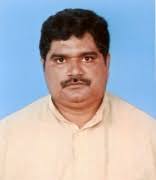Articles
Immunological Thinking
Opinion | Articles | Victor Ferrao | 12-Feb-2023

Humans have gone through several ages of affliction. There was a microbial age that ended with the discovery of antibiotics. Thanks to immunological science and technology, we have left it behind although covid-19 virus threatened to usher it again. The 21st century from a pathological stand point is said to be threatened by neurons. Neurological disorders such as depression, attention deficit hyperactivity disorder, borderline personality disorder, and burnout syndrome seem to have cast dark clouds over our society. These are not infections but infarctions as they do not follow from negativity of what is immunologically foreign but are a result of excess positivity. It is being said that our disciplinary societies taught by Michel Foucault and Societies of Control of Gilles Deleuze have given way to the Achievement or Societies of Enjoyment.
Although, the boundaries are not clearly marked between the past societies of power (Disciplinary Society and Society of Control) and the present, we find what may be called immunological thinking affecting us especially in our country. We are still thinking with the categories of insider and outsider, friend and foe, self and the other. We still exhibit immunological response as we think that minorities are pathological to our society. We have become immunological subjects. While the servile societies have stepped away from these immunological foundations, we seem to be every much pushing ourselves into it. We have not yet come out of the immunological age. Every ‘Other’ triggers an immune response in our society.
Immunological thinking favours sameness and homogeneity. It sees otherness a pathological. Immunological models have entered our political discourse. We, therefore, uncritically accept binaries of us and them like tukde tukde gang as well as think through loyalty and disloyalty that defines a nationalist and the deshdrohi or sanskari Hindu and other Hindus. When immunity becomes an interpretive category, it divides a society and keeps it on the boil and attempts to hunt down all that is deemed to be pathological to it. Such a society runs on the steam of dialectic of negativity. It takes up the mission to eliminate negativity. The other is viewed as negative. The moral order that undergirds immunological thinking believes in the elimination of otherness as an act of justice. It is a negation of negation, therefore a negative dialectics.
The immunological subjects try to inoculate themselves against influence of otherness and leans to a (hybridized) tradition that is deemed as pure and safe. The inoculation usually takes the form of ethnocentrism, caste-centrism, racism, religion-centrism, nationalism etc. Often the migrant, minority, poor, tribal and women become the immunological other that has to be expelled to save the nation, ethnic group, religion, caste, race etc. The immunological reaction is greeted as immunological self-assertion. There are several voices in our country that celebrate the so called fact that ‘Hindu zagrut ho gaya !’. The other is thought to be deadly and, therefore, on all counts has to be eliminated. We seem to notice this in thought that thinks that ‘Hindus Katre me hai’.
The challenge is to think de-immunologically. We have to become de-immunological subjects. When we begin to think de-immunologically, the other becomes therapeutic and not pathological. Immunological thinking on the other hands treats the other as a source of rupture and sees the return of the equilibrium through the elimination of that toxic other. Therefore, the other is thought a contagion that infects and destroys oneself and one’s community. Hence, one thinks that the toxic other has to be eliminated. Hence, immunization against the caustic corrosiveness of the other is constantly sought. De-immunological thinking shuns aside the thought that the other is a contamination.
When our society is homogenized, it becomes competitive and exhausts its energies on petty battles and lives on inter-passivity. A tired society is lazy even to laugh. This is why it survives on canned laughter. We have several programs where the TV itself does the laughing for us. The immunological thinking seems to lead us to surrogate our enjoyment. The prime time television with its noisy debates does the fighting for us. Maybe we have put all our eggs in the basket of one man. This may explain why we believe: ‘Modi hai to munkin hai’.
We have the challenge to reject immunological thinking that pathologies the other. To arrive at dialogical process, we have to give up our homeopathic protection practices that exclude those that are deemed as others by including those that are thought to be same as us. This homofilia has to embrace heterofilia. Immunological thinking does prolong life but it gives us a taste of death via its fear. De-immunological thinking adds life to our being and there is no shadow of the fear of death. It leads us to enjoy and live wholesome life alongside our other. The de-immunological thinking tpercieves the other as a therapy and is a vibrant vitaecracy while immunological thinking is a slow thanatocracy.
____________________________
(The Author is a priest in the Archdiocese of Goa, Diu and Daman, formerly a Professor in Rachal Seminary. Views expressed are personal)
Leave a comment
